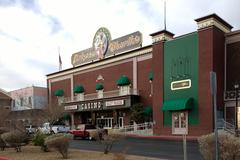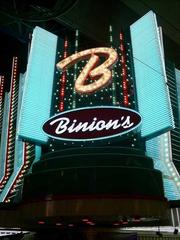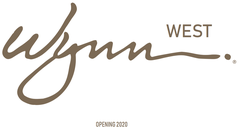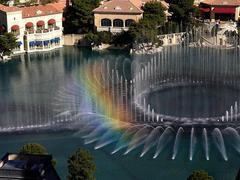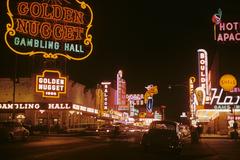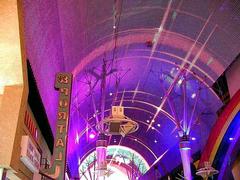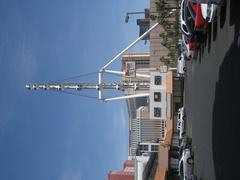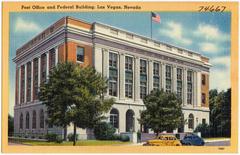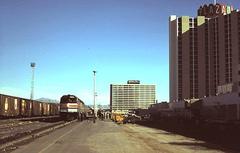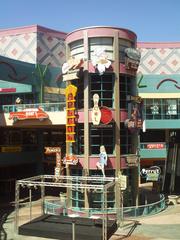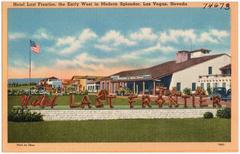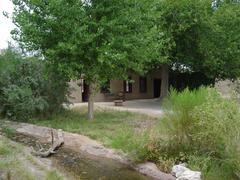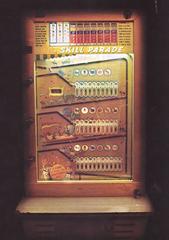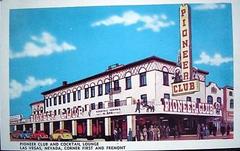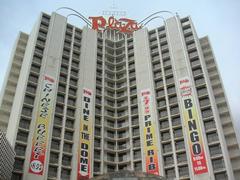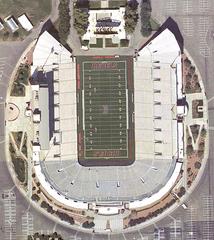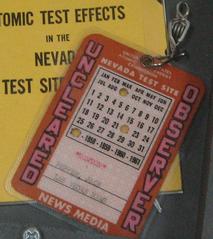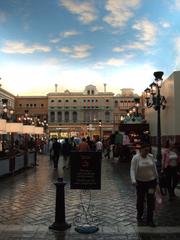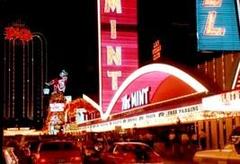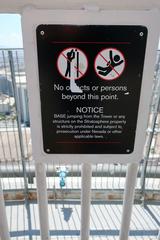Sandhurst Las Vegas Visiting Hours, Tickets, and Historical Sites Guide
Date: 04/07/2025
Introduction
Nestled in the dynamic heart of downtown Las Vegas, the Sandhurst Las Vegas site symbolizes both the city’s ambition for urban transformation and the volatility of its real estate boom. Originally envisioned as a high-rise luxury condominium project in the early 2000s, Sandhurst Las Vegas was poised to redefine downtown living with modern amenities and vertical sophistication. Although the project was ultimately cancelled before construction began, its story remains intertwined with the broader narrative of Las Vegas’s urban renewal, economic cycles, and evolving skyline.
This comprehensive guide explores the historical context of Las Vegas’s development, chronicles the rise and fall of the Sandhurst project, and provides practical visitor information—covering the site itself, nearby attractions, and tips for exploring downtown. Whether you’re searching for “Sandhurst Las Vegas visiting hours,” “Sandhurst Las Vegas tickets,” or the best historical sites in the area, this guide is your gateway to understanding and experiencing the rich tapestry of downtown Las Vegas.
Table of Contents
- Historical Background and Urban Context
- Sandhurst Las Vegas: Vision, Development, and Current Status
- Visitor Information and Practical Tips
- Downtown Las Vegas: Top Attractions and Historical Sites
- Special Events and Guided Tours
- FAQs
- Visuals and Media Recommendations
- Conclusion
- References
Historical Background and Urban Context
Early Las Vegas: From Meadows to Metropolis
Las Vegas’s roots stretch back to the Southern Paiute people, who settled the area around 300 CE, harnessing the natural springs that inspired the city’s Spanish name “the meadows” (Westgate Resorts). The first permanent non-native settlement came in 1855 with Mormon missionaries at the Old Las Vegas Mormon Fort (Cunian). The city was officially founded in 1905, catalyzed by a land auction near the Union Pacific Railroad, laying the groundwork for downtown’s emergence as the urban core (Popular Timelines).
Urban Expansion and the Rise of the Strip
The construction of the Hoover Dam in the 1930s fueled population growth and infrastructure development. The casino industry, initially centered around Fremont Street, shifted to the newly built Las Vegas Strip in the 1940s, with iconic resorts setting the stage for the city’s entertainment legacy (KNPR; Emerald Insight).
Urban Sprawl and Master-Planned Communities
Las Vegas expanded outward, with sprawling residential developments and master-planned communities emerging post-WWII (Planning Forum). The advent of McCarran Airport (now Harry Reid International Airport) and the University of Nevada, Las Vegas, accelerated suburbanization.
Demographic and Economic Growth
By the late 20th century, Las Vegas became the fastest-growing U.S. city, with its population surging to over 640,000 by 2020 (Popular Timelines). The city’s economy remains anchored by tourism and hospitality, drawing more than 40 million annual visitors (Canada to USA).
Recent Developments and Urban Renewal
Recent downtown projects include Symphony Park’s new residential units and the Brightline West high-speed rail project, connecting Las Vegas to Southern California (Popular Timelines). These initiatives signal ongoing efforts to diversify the city’s urban landscape and reinforce downtown as a hub for living, commerce, and culture.
Sandhurst Las Vegas: Vision, Development, and Current Status
The Ambitious Vision
Conceived in 2004 by Sandhurst Development, the Sandhurst Las Vegas project aimed to bring luxury, high-rise living to downtown. The plan included a 35-story tower with 398–413 residential units, a 700-space parking garage, 10,000 square feet of restaurant space, a 30,000-square-foot spa, and extensive retail facilities (Wikipedia; dbpedia.org). Designed by JMA Architecture, the building promised modern amenities and panoramic city views.
Development Challenges and Cancellation
Despite initial enthusiasm, the project faced mounting construction costs, financing difficulties, and logistical setbacks. By 2007, with the real estate market cooling and funding uncertain, Sandhurst Las Vegas was officially cancelled (Fine Homes LV). The site’s rapid appreciation—from $2.8 million in 2004 to an estimated $24 million—epitomized the speculative optimism and subsequent correction of the era.
The Site Today
As of 2025, the Sandhurst site remains an undeveloped lot near Charleston Boulevard and Grand Central Parkway, just east of Interstate 15 and close to the World Market Center. There are no buildings, signage, or designated visitor facilities. The site stands as a silent testament to the ambitions and realities of downtown Las Vegas’s urban renewal.
Visitor Information and Practical Tips
Access and Visiting Hours
- Site Access: The former Sandhurst site is part of downtown Las Vegas and is open to the public; no tickets or entry fees are required.
- Visiting Hours: As an open urban area, there are no set visiting hours, but daylight hours are recommended for safety and comfort.
- Getting There: Easily accessible by car, rideshare, or public transit. Downtown Las Vegas is pedestrian-friendly, but summer temperatures can be extreme—plan accordingly.
On-Site Experience
- What to Expect: The site itself is an empty lot, but its central location makes it an excellent starting point for exploring downtown’s attractions.
- Photography: Capture the downtown skyline, nearby vintage neon signs, and local street art—sunrise and sunset offer optimal lighting.
- Safety: Stay alert, especially in the evenings, and follow local safety guidelines. Bring water, sun protection, and wear comfortable walking shoes (Fault Magazine).
Downtown Las Vegas: Top Attractions and Historical Sites
Explore the rich history, culture, and entertainment offerings that surround the Sandhurst site:
Fremont Street Experience
A vibrant pedestrian mall featuring a 1,500-foot LED canopy, nightly light shows, live music, and the SlotZilla zipline (KNPR).
- Hours: Open daily; light shows begin at dusk.
- Tickets: Free entry; SlotZilla zipline ticket prices vary.
The Neon Museum
A living museum of iconic Las Vegas neon signs, offering immersive guided tours (Neon Museum Official Site).
- Hours: Wednesday–Monday, 10 AM–8 PM (seasonal variations).
- Tickets: General admission starts at about $20; advance booking recommended.
- Accessibility: Wheelchair accessible.
The Mob Museum
Delve into the history of organized crime and law enforcement in Las Vegas (Mob Museum Official Site).
- Hours: Daily, 10 AM–9 PM.
- Tickets: Adults $29.95; discounts available.
- Accessibility: Fully accessible.
Arts District
A creative hub featuring galleries, studios, vintage shops, and monthly First Friday art walks (Fodor’s Las Vegas).
Historical Landmarks
- Golden Gate Hotel & Casino: The city’s oldest operating hotel and casino (las-vegastravelguide.com).
- Historic Fifth Street School: A restored cultural landmark from the 1930s.
- Little Church of the West: A historic wedding chapel in continuous operation since 1942.
Special Events and Guided Tours
- Historical Walking Tours: Local guides offer tours focused on downtown’s evolution, including the story of the Sandhurst site and other notable projects (Las Vegas Historical Society).
- Arts District Events: Regular festivals and art walks showcase the district’s creative spirit.
FAQs
Can I visit the Sandhurst Las Vegas site?
Yes, the site is accessible as part of the downtown area, but there are no buildings or official tours.
Are there visiting hours or tickets required?
No, there are no official hours or ticket requirements for the site itself.
What are the best nearby historical sites?
The Golden Gate Hotel & Casino, Historic Fifth Street School, and Little Church of the West are all recommended.
Are guided tours available?
Yes, walking tours focusing on downtown’s history and urban development are available.
Is the area accessible for people with disabilities?
Downtown Las Vegas offers many accessible sidewalks and venues, but check specific locations in advance.
Visuals and Media Recommendations
Enhance your visit with virtual tours, maps, and images available via official attraction websites. Look for visuals such as “Downtown Las Vegas near former Sandhurst Las Vegas site,” “Golden Gate Hotel & Casino historic facade,” and “Neon Museum Las Vegas historical signs.” For interactive walking tours and personalized itineraries, consider downloading the Audiala app.
Conclusion
Though the Sandhurst Las Vegas condominium project never rose above ground, its story reflects the dreams, challenges, and resilience of downtown Las Vegas. The site today serves as a gateway to a vibrant district rich in history, culture, and ongoing renewal. From the electric energy of Fremont Street to the illuminating exhibits at the Neon Museum and Mob Museum, downtown Las Vegas invites exploration and discovery.
Whether you’re a history enthusiast, urban explorer, or first-time visitor, use this guide to uncover the best of downtown Las Vegas—where past, present, and future converge. For curated walking tours, event updates, and travel tips, download the Audiala app and follow our latest recommendations.
References and Further Reading
- Las Vegas History – Westgate Resorts
- Sandhurst Las Vegas Project Cancelled – Fine Homes LV
- Building Las Vegas: Urban Sprawl – KNPR
- Las Vegas Historical Society
- The Neon Museum Official Site
- The Mob Museum Official Site
- Making It Home: Urban Renewal – KNPR
- Golden Gate Hotel & Casino Historic Sites
- Fodor’s Las Vegas
